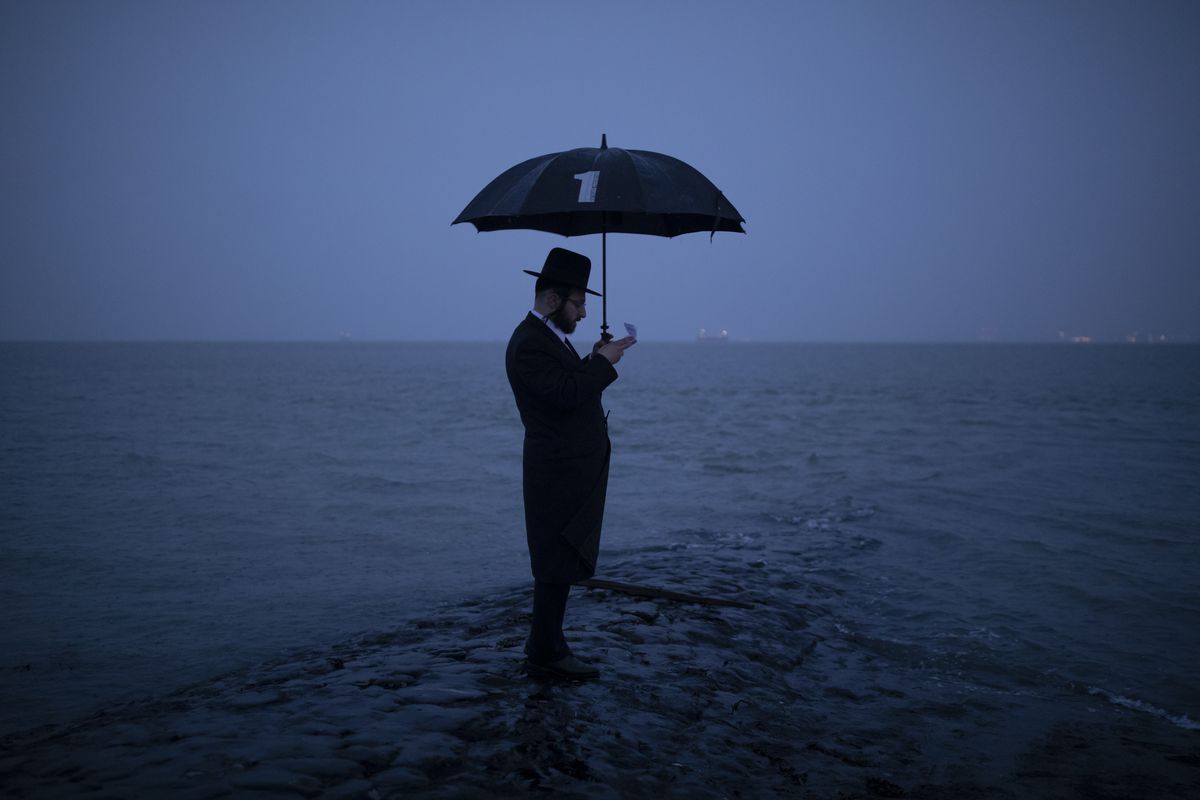Jewish community prepares for upcoming High Holy Days with apples and honey

Jews around the world and in Spokane will gather to celebrate the High Holy Days next week, beginning with the observance of Rosh Hashanah on Sunday evening.
Rosh Hashanah is essentially a celebration of the new year, Rabbi Yisroel Hahn of Chabad of Spokane said. “Rosh Hashanah literally means the head of the year,” he said.
The day is also known as Judgment Day, not only for Jews but for all of humanity, Hahn said.
“God decided what the fate of every creature will be on Rosh Hashanah,” he said. “That’s why it’s called the Day of Judgment.”
The High Holy Days are also a celebration of the creation of the earth and everything on it. The creation story, as told in Genesis, states that man was created on the fifth day.
“We don’t celebrate the beginning of the world, we celebrate the creation of man,” Hahn said. “That happened on Rosh Hashanah.”
The day is also one to consider the role and responsibility of each person since humans, unlike animals, have a choice in how life unfolds. It’s a time to determine how we should live our lives in the coming year.
“We are in charge of determining what the world looks like, good or bad,” Hahn said. “What happens to the head affects the rest of the body. What happens on Rosh Hashanah affects the rest of the year. Hopefully, you live the next year living up to what you should be.”
The celebration of Rosh Hashanah includes the sounding of the shofar during a worship service. That is the most important part of the observance, even more so than listening to the Rabbi’s words, Hahn said.
“The sounding of the shofar is the raw cry of the soul that wants to connect to God,” he said. “You have to hear the shofar. Rosh Hashanah is declaring that God is King and that is hearing, listening to the shofar.”
Another Rosh Hashanah tradition is to eat apples dipped in honey and wish one another a good and sweet year, Hahn said.
“We don’t want that things are just good, we want sweet things,” he said.
Ten days of repentance, known as the Days of Awe in Hebrew, follow Rosh Hashanah. It’s a time when Jews reflect on their shortcomings and what they need to do to improve as well as making amends with people they have wronged.
“This is the time we ask people for forgiveness and repent for our sins,” Hahn said.
The 10 days of repentance end with Yom Kippur, known as the Day of Atonement, a day of fasting and prayer. People are to have no food or drink, not wash or use lotion or perfume, and abstain from intimacy. People generally wear white during services that day. It is also a tradition to not wear leather shoes.
“In those days, if you didn’t wear leather shoes, it was very uncomfortable,” he said.
Local congregations will host High Holy Days services to help Jews observe the holidays. Temple Beth Shalom and Congregation Emmanu-el will join together for a Rosh Hashanah service from 9 a.m. to 1 p.m. on Monday and Tuesday. A Kol Nidre service marking the eve of Yom Kippur will be held from 5:30 to 6:30 p.m. on Oct. 4. A Yom Kippur service will be from 9 a.m. to 1 p.m. on Oct. 5, followed by Havdalah and a potluck beginning at 7 p.m. Reservations are required and can be made by visiting www.spokanetbs.org. All events are located at Temple Beth Shalom, 1322 E. 30th Ave., and will also be available via Zoom.
Chabad of Spokane will also have a full schedule of events and services, including an evening service at 6:30 p.m. Sunday followed by a community dinner at 7 p.m. Services begin at 9 a.m. Monday and Tuesday, with a community buffet lunch at 1 p.m. both days. A Kol Nidre service will begin at 6:30 p.m. Oct. 4 and Yom Kippur services will begin at 9 a.m. on Oct. 5. Reservations for services and meals can be made online at www.jewishspokane.com at the High Holidays link. Chabad of Spokane is at 4116 E. 37th Ave.